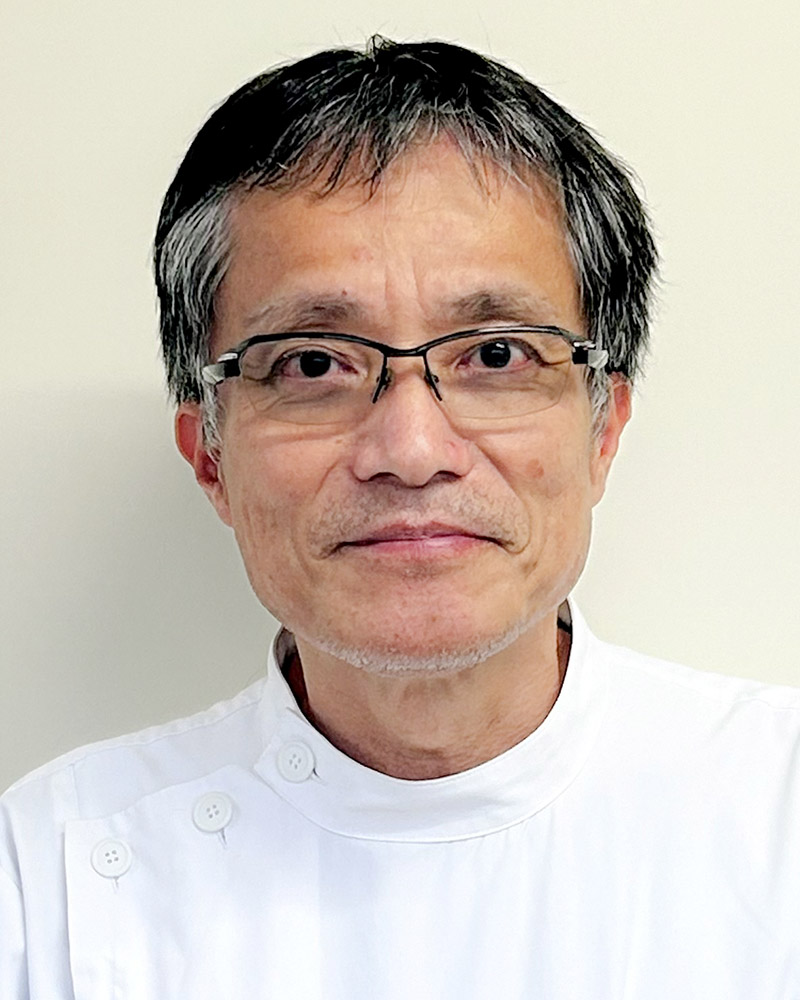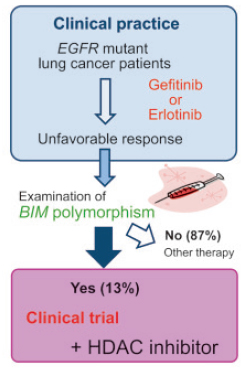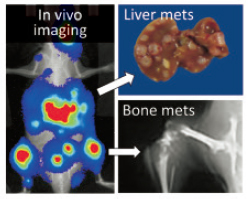Organization
Division of Innovative Cancer Control Research
Staff

Professor
TANIGUCHI, Hiroaki

Lecturer
OHTSUBO, Koushiro

Lecturer
TAKEUCHI, Shinji

Assistant Professor
YAMASHITA, Kaname

Assistant Professor
DOUMOTO, Takahiro

Assistant Professor
NISHIYAMA, Akihiro

Assistant Professor
KOTANI, Hiroshi

Assistant Professor
FUKUDA, Koji

Assistant Professor
SAKAGUCHI, Hiroyuki
Aims, Ongoing Projects, and Recent Achievements
Lung cancer is the leading cause of malignancy-related death in Japan. High mortality of lung cancer is due to low susceptibility to anti-cancer drugs and high metastatic potential.
We recently discovered a novel mechanism by which hepatpcyte growth factor (HGF) induces resistance to gefitinib and erlotinib in lung cancer. We also reported that histone deacethylase (HDAC) inhibitors overcome targeted drugresistance due to BIM polymorphism, which is specifically found in Asian. We are now conducting the clinical trials to overcome resistance caused by these mechanisms.
Since clinically relevant animal models are essential for elucidating the molecular pathogenesis of cancer metastasis, we have established reproducible in vivo imaging models representing multi-organ metastasis, brain metastasis, lung metastasis, bone metastasis, or malignant pleural effusion, using human lung cancer cell lines. We are elucidating anti-metastatic effects of several molecular targeted drugs in these models.
Furthermore, we established orthotopic implantation models of malignant pleural mesothelioma and gastric cancer. The goal of our translational research with these animal models is the establishment of novel molecular targeted therapeutics for solid tumors, such as malignant pleural mesothelioma, pancreatic cancer and gastric cancer.

Molecular mechanism by which HGF induces resistance to gefitinib in EGFR mutant lung cancer

Strategy to overcome BIM polymorphism-associated targeted drug resistance by combined use of HDAC inhibitors

In vivo imaging of multiple-organ metastasis

